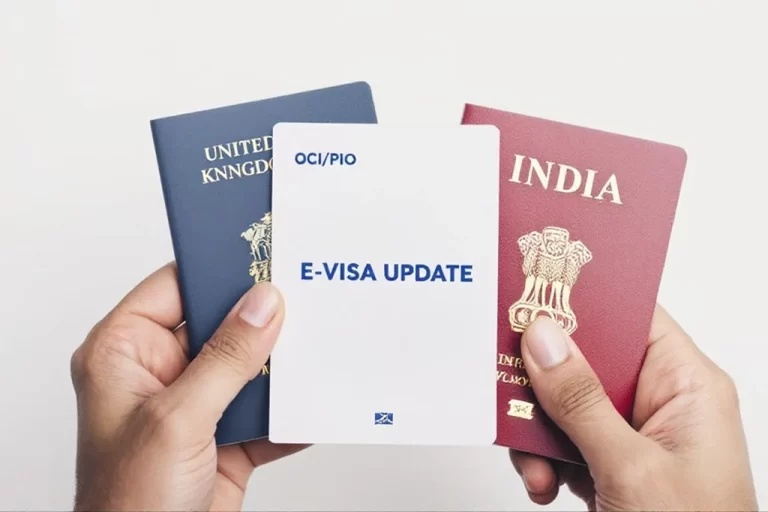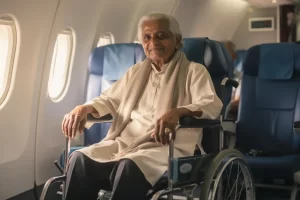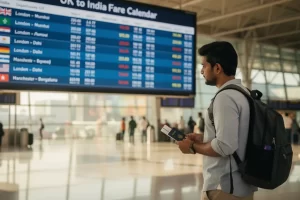This blog post provides actionable up-to-date information for UK passport holders traveling to India, including concise inshorts, OCI/PIO, and e-Visa updates for 2025. Every section is tailored for Indian families, students, and working professionals.
InShorts: Key Takeaways for UK Passport Holders - Documents Required & Application Form
OCI cardholders must now also complete the new e-Arrival Card before every trip to India.
PIO cards remain valid only till 31 December 2025—convert to OCI soon.
British passport holders cannot get “visa on arrival”—applying for an e-Visa in advance is mandatory.
UK passport holders must carry a valid travel document (passport) and a valid visa (e-Visa or OCI card) to enter India.
OCI renewals are simpler: re-issue only once after age 20, then upload new passport details and personal particulars online as needed through the official online system.
The new Indian e-Arrival Card replaces the paper form at airports and applies to all foreign travellers, including those with OCI cards.
Use only the official Indian visa website or trusted official apps for applications—avoid third-party agents and unauthorized payment aggregator services.
The application online process supports multiple payment options, including SBIEPay payment gateway, ensuring flexibility for applicants and secure sockets layer (SSL) protection for a successful transaction. Applicants will see a payment successful page confirming their transaction immediately after payment is processed through authorized payment channels. Payments may also require verification via Mastercard Secure Code for added security.
Why These Updates Matter for OCI Cardholders and Foreign Nationals
Big changes have arrived for UK passport holders—especially those of Indian origin—planning trips to India in 2025. India is streamlining entry requirements with new digital forms and timelines, aiming for safer and smoother journeys for families, students, and professionals alike.
These updates are part of new policies and digital initiatives introduced by the Government of India and foreign government organisations to streamline travel and immigration procedures.
The Latest on OCI Application: What’s Changed for OCI Cardholders?
The Overseas Citizen of India (OCI) card has always been the golden pass for Indian-origin families abroad, offering multiple entries and long stays without visas. Introduced in August 2005, the OCI card has since become a vital document for the Indian diaspora.
To become an OCI cardholder, applicants must complete the online OCI application, submit required documents, and provide personal particulars and passport number via the official application form. The Government of India verifies documents strictly, especially for foreign spouses of Indian origin spouse. Eligible foreign nationals and minor children of Indian citizens or OCI holders can obtain OCI status and its benefits.
Here’s what’s new for 2025:
New e-Arrival Card Rule: From October 2025, OCI holders must fill out an online e-Arrival Card up to 72 hours before travel—no more skipping this step at the airport.
Re-Issuance Made Easier: If you got your OCI before turning 20, you only need to re-issue it once after your 20th birthday. After that, simply upload your latest passport and photo online whenever you renew your passport—no need for a new OCI every time.
Family Clarifications: Spouses and children of Indian nationals (or PIO/OCI holders) can claim OCI benefits, even if the Indian partner has passed away, if other criteria are met. Foreign spouses must attend an initial verification interview and provide an apostilled birth certificate. Minor children are eligible with parental support. Applicants’ parents or grandparents must not have been citizens of Pakistan or Bangladesh.
Digital Smart Card Rollout: Some consulates are moving to digital OCI cards, making immigration checks even smoother. More global rollout is expected in 2025.
Payment Process: The online payment system uses a secure payment gateway where the applicant perform the payment on the payment page. The applicant’s card account is charged once the payment is successful and shown payment successful on the payment successful page. The card issuing bank participates in a due reconciliation process to ensure no further debits occur after the transaction is completed. Applicants receive a single application number registered confirming the payment and application status. Applicants should avoid performing multiple times transactions or more than one transaction for the same application to prevent transaction status unknown issues. In case of any payment related transactions queries, refer to the payment successful page or contact support. Refunds processed due to failed or duplicate payments are handled promptly by the payment channels involved.
PIO Cards: Final Countdown for Conversion to OCI Cardholders - Documents Required
If you still carry a Person of Indian Origin (PIO) card, mark your calendar—PIO cards are valid for travel to India only up to 31 December 2025. After this, only an OCI card or a fresh visa will let PIO holders enter. The PIO card scheme was withdrawn, making it mandatory for PIO card holders to convert their PIO card to an OCI card before the deadline. The process to convert PIO card to OCI requires submitting all these documents, including proof of identity, supporting documents, and the original PIO card. The documents required for conversion must be submitted to the designated Indian mission or Indian missions abroad. Indian missions are responsible for document verification and processing the conversion and verifying the submitted documents. There won’t be another extension, so converting to OCI is crucial this year.
Note: Applicants owning agricultural or plantation properties in India should ensure their documentation is up to date during the application process.
e-Visa: Mandatory for UK Passport Holders - Apply Online and Use Official Application Form
British citizens (without OCI) must apply for an Indian e-Visa before departure—there’s no visa on arrival at Indian airports. The e-Visa process is entirely online, suitable for tourists, business, students, and medical travelers. Foreign nationals, including UK citizens, must obtain a valid tourist visa or e-Visa before traveling to India. Travelers without a valid visa may be denied entry at the border. Foreign nationals must ensure their visa and travel documents are valid and up to date before departure. E-Tourist visas can be applied for online and are processed electronically, typically valid for 5 years with stays of up to 180 days per calendar year. Employment visa applications follow a similar online system but require additional documentation related to employment.
Required Documents: Valid passport (including Indian passport holders traveling abroad), digital photo, supporting documents (like a business card, hospital letter, or invitation, depending on visa type).
Official Website: Only apply online via the official Indian e-Visa portal or authorized mobile apps. Beware of unofficial agents, who may charge hefty fees or send fake e-Visas. You must pay the e-visa fee online using a credit or debit card.
New e-Arrival Card: Mandatory for All Foreign Nationals Including OCI Cardholders
From October 2025, every UK passport holder (including OCI/PIO/visa travelers) must complete India’s new e-Arrival Card before boarding. This online form asks for your passport, contact details, reason for visit, and your Indian address. Completing the e-Arrival Card is now a mandatory step for all travelers wishing to enter India or visit India, regardless of visa or OCI status. Fill it out within 72 hours before arrival, print the confirmation, and carry it with you—this will save time at immigration counters.
Pro-Tips for Indian-Origin Families, Students, and Professionals: Birth Certificate, Indian Passport, and More
Double-check your OCI/PIO card expiry and conversion deadlines.
Don’t wait till the last moment for an e-Visa; apply at least 2 weeks ahead of travel.
Save all documentation and confirmation emails—immigration officers can ask for physical or digital proof.
Make use of the new digital tools—easier uploads and faster document verification are here to help.
Check if your itinerary includes any restricted or protected areas in India, and apply for the necessary permits in advance.
Always complete your application form carefully and review the payment options before submitting the application online. Avoid performing multiple times transactions to prevent payment issues.
Ensure your arrival date is correctly entered in all forms to avoid delays.
Overseas citizenship status must be clearly indicated in your application to prevent processing issues.
Applicants with a Pakistani passport or whose parents/grandparents held such passports are not eligible for OCI registration.
India cardholder registered details must be accurate to avoid complications during immigration.
Traveling to India is now smoother—but keeping up with these rules is a must. Families, students, and professionals from the UK will find the new digital steps easy if they plan ahead and use only official channels. For those booking UK to India flights, ensuring all travel documents and e-visa requirements are in order will help make the journey hassle-free. Safe travels and happy reunions!
Frequently Asked Questions (FAQs)
Do UK passport holders need a visa to enter India if they have an OCI card?
No, UK passport holders who are OCI cardholders do not need a separate visa to enter India. The OCI card allows multiple entries and lifelong visa validity.
What is the deadline for PIO cardholders to convert to OCI cards?
PIO cards remain valid only until 31 December 2025. After this date, PIO cardholders must convert their PIO card to an OCI card or obtain a fresh visa to enter India.
Is it mandatory to complete the e-Arrival Card before traveling to India?
Yes, starting from October 2025, all foreign nationals, including OCI cardholders, must complete the e-Arrival Card online within 72 hours before arrival to India.
Can foreign spouses of Indian origin apply for an OCI card?
Yes, foreign spouses of Indian origin are eligible to apply for an OCI card but must attend an initial verification interview and provide an apostilled birth certificate as part of the application process.
What should I do if I have multiple payment transactions during my OCI or e-Visa application?
Applicants should avoid performing multiple transactions for the same application to prevent transaction status unknown issues. If you encounter payment-related problems, refer to the payment successful page or contact support promptly.
Are there any restrictions on staying in certain parts of India for OCI cardholders?
Yes, OCI cardholders need special permits to visit certain restricted or protected areas in India. It is advisable to apply for these permits well in advance to avoid any travel disruptions.





